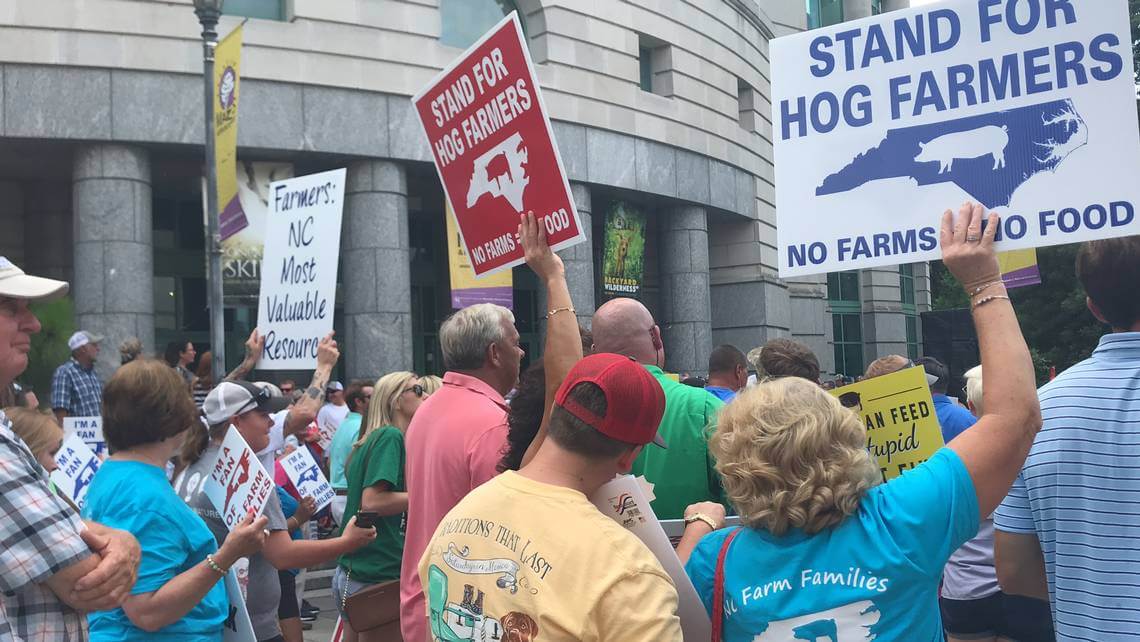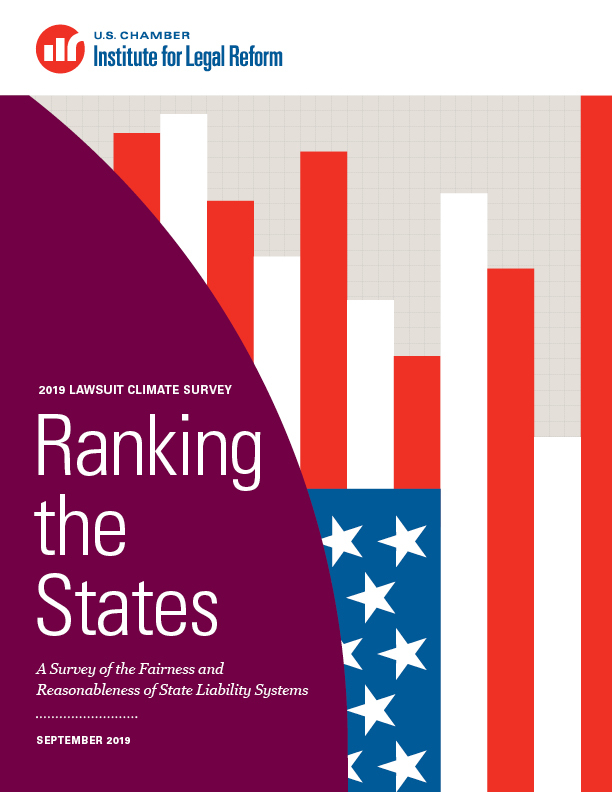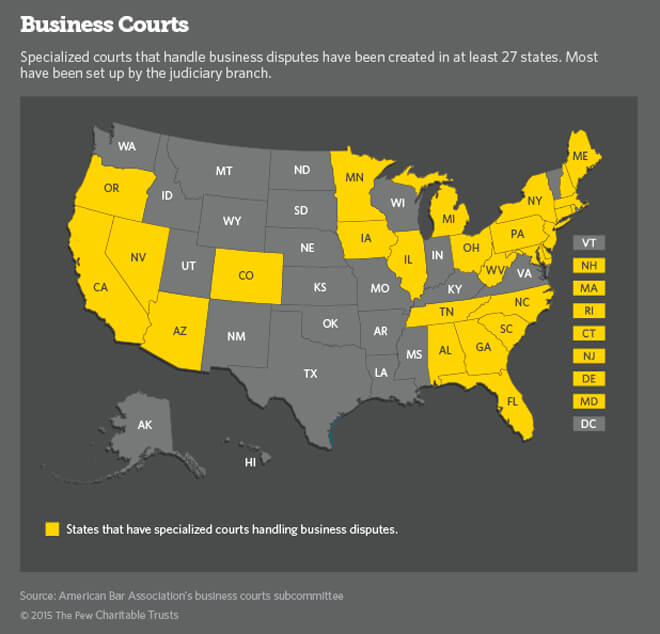
Jury awards hog farm neighbors their biggest verdict yet
Craig Jarvis | The News & Observer | August 3, 2018
RALEIGH
A federal jury on Friday awarded more than $470 million to six neighbors of a hog farm in Pender County who complained of excessive noise, odor, flies, buzzards and other disruptions to their quality of life.
The stunning verdict, reached after just three hours of deliberation, came against pork producer Murphy-Brown, and marked the third time that juries have ruled against the company in a nuisance lawsuit. At $473.5 million, this was the largest of the three.
The first two verdicts were reduced in line with state law capping punitive damages. The cap will lower the amount to $94 million in total damages in this case.
The jury awarded $75 million each in punitive damages to the six neighbors, and $3 million to $5 million each in compensatory damages, according to court documents.
The verdict came in as dozens of national and state politicians and agricultural officials convened across town at the State Fairgrounds. The roundtable event, which was carried live online, was meant to galvanize national opposition to these North Carolina lawsuits that have triggered panic in the agricultural industry.
“If we don’t do something about it right now there is not a farm in this country that is going to be safe,” N.C. Agriculture Commissioner Steve Troxler told the gathering. “… This has got to stop. Farmers are being put out of business because of this.”
There are 26 lawsuits with more than 500 plaintiffs suing Murphy-Brown. The lawsuits were consolidated in 2015. These first three trials were among five initial lawsuits designated to go to trial, giving both sides an opportunity to gauge the strengths and weaknesses of their cases. The lawsuits are expected to be resolved in appeals court or through a settlement at some point.
The first two trials ended with verdicts against Murphy-Brown with multimillion-dollar awards. The third trial began more than four weeks ago.
Pork Council: ‘Outrageous” verdict
The N.C. Pork Council issued a statement calling the verdict “outrageous.”
The state chapter of The Sierra Club praised the verdict, saying hog producers are using outdated technology that sprays fields with waste water from lagoons. .
“Once again, a jury of North Carolina citizens has sent a message that Smithfield needs to clean up its act,” Sierra Club government relations director Cassie Gavin said in an email. “Air and water pollution and odors from factory hog farms have been a problem in our state since the explosive growth of these operations in the 1990s. … The hog industry should improve its waste management and state lawmakers should require better practices to protect the public health and the environment.”
The six neighbors in the latest lawsuit, who live in five homes, argued that the disruption from the hog farms, while not consistently offensive, could be staggering.
Their attorneys emphasized the wealth of Murphy-Brown’s parent company, Smithfield Foods, and in turn the Chinese conglomerate WH Group.
The top four officials in that company received $245 million in compensation over the six-year period covered in the lawsuits. Despite that, the plaintiffs contended, nothing was done to reduce or eliminate the nuisances through improved technology or covering the lagoons that hold hog waste.
Murphy-Brown’s defense minimized the noise and odors, noting that some neighbors had outdoor furniture and other evidence that their daily lives were not disrupted. They had other neighbors testify that the smell was not intrusive, but was what would be expected around farms.
The Pork Council posted its reaction to the verdict on its website Friday, calling on defense attorneys to appeal the verdict. The statement said the farms involved were built in the mid-1990s, after which each of the six plaintiffs moved near the farms or built new homes there. None had complained of hog farm nuisances until 2014, when attorneys filed lawsuits, it said.
“Outlandish verdicts like this one are a severe threat to our farmers,” the statement says. “We care about our communities and neighbors. We care about the environment. We care about producing safe, affordable food for all in a responsible and sustainable way. Producing food is noble, not a nuisance.”
‘Spreading like cancer’
The roundtable at the fairgrounds featured about three dozen speakers and an audience of close to 1,000 crammed into the Martin Building and an overflow crowd at the Kerr Scott Building. The themes that emerged included criticism of U.S. District Court Judge Earl Britt for his rulings during the trials, promising farmers that “we have your back,” and attacking the trial attorneys who brought the lawsuits.
The industry sees North Carolina as the beachhead in what they fear is shaping up to be a widespread and protracted fight.
“We need to communicate to the American people and the people of North Carolina it is going to affect every single one of them if we don’t figure out a way to stop them in their tracks here and prevent them from spreading like a cancer across the country,” said U.S. Sen. Thom Tillis, a Republican from North Carolina. “… We need to send a message to the trial lawyers: We’re bigger than you are if we come together.”
U.S. Rep. David Rouzer, a North Carolina Republican, ran the event, which drew U.S. Rep. Michael Conaway, chairman of the House Committee on Agriculture; Zippy Duvall, president of the American Farm Bureau Federation; U.S. Agriculture Under Secretary Bill Northey; agriculture office-holders from South Carolina, Georgia, Texas and Delaware, and commodity representatives.
Ryke Longest, director of the Duke Environmental Law and Policy Clinic, said he was disappointed in the roundtable.
“Rather than discuss the concrete steps to protect farmers, political and agribusiness leaders used today’s meeting to congratulate each other for enacting SB 711 (legislation that expanded protections for farms that the General Assembly passed) and tell lawyer jokes and insults,” Longest said in an email. “Those leaders should have been talking about how to replace lagoons and spray fields, how to protect growers from onerous production contract burdens and how to end the pointless trade war which threatens all farmers.”
























